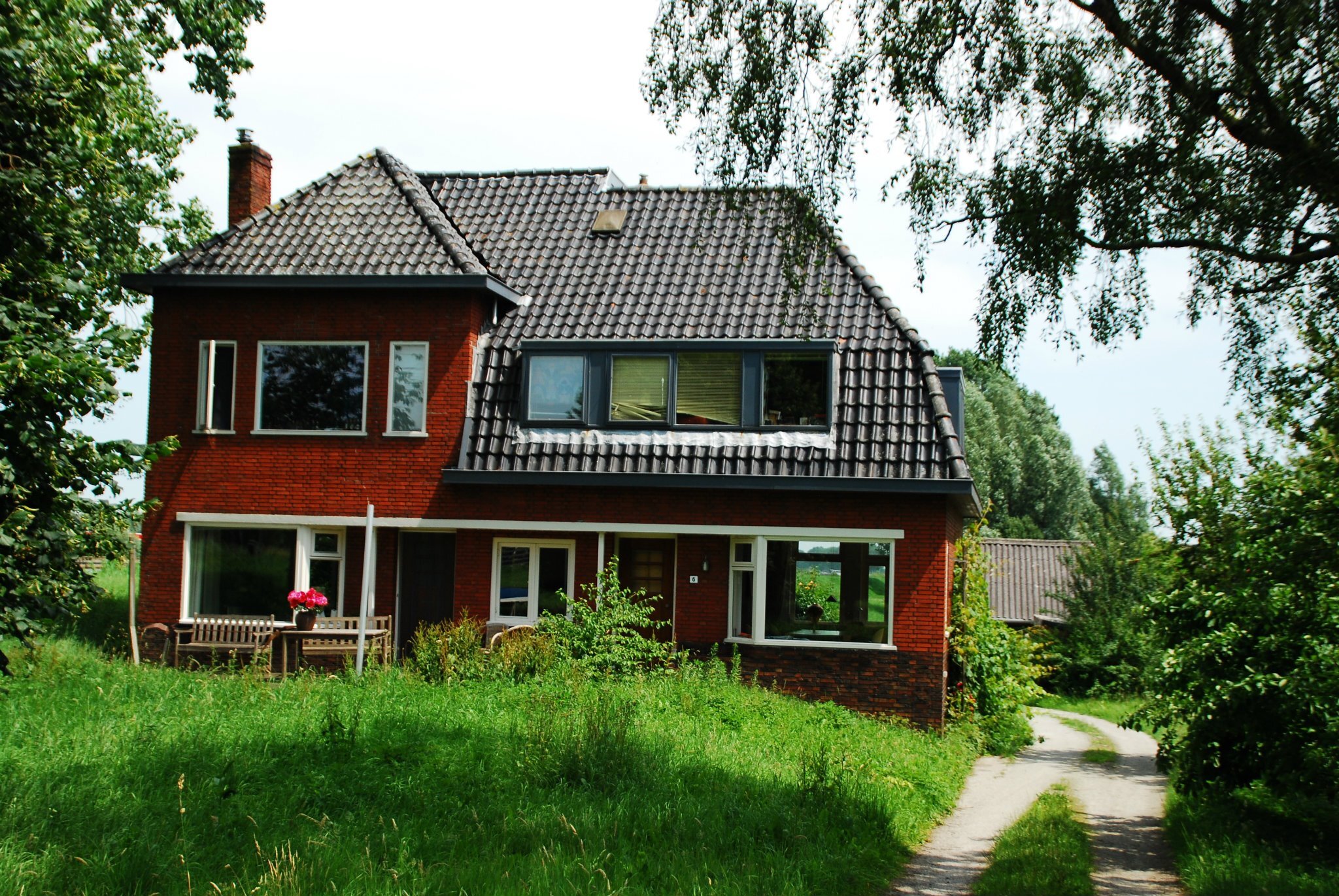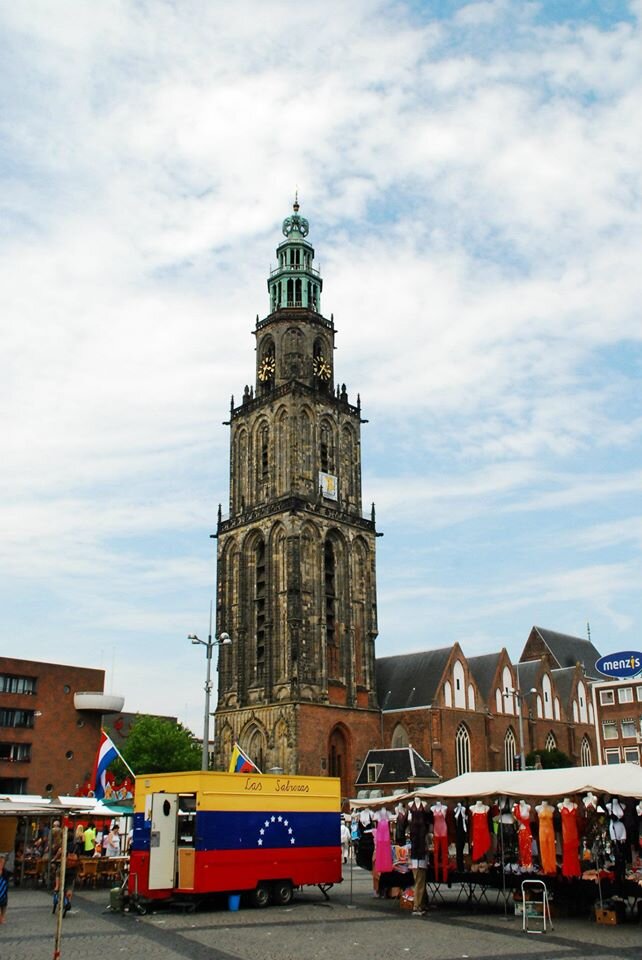War and COVID: Childhood lessons from the Occupation of the Netherlands
A word of caution: this episode contains stories and personal memories of war that may be challenging for some listeners.
Hello isolators, and welcome to another episode of Well That’s Cool, a podcast about things and people I’m curious about! I hope you are doing well finding some joy in your time of quarantines and distancing. I’m almost done my fourth week of working and more or less staying at home, it’s hard to believe it’s that long already. It’s just about Easter as well, tomorrow is Good Friday, and I know that for many people this was supposed to be a weekend of spending time with family and observing important religious events in a variety of faith calendars. I was looking forward to a vacation back home on the west coast, but I’m still in Edmonton. At least things are, or were for a couple days, getting a bit warmer, finally.
I know that this level of disruption can be difficult, especially now that we’re a month into isolation, and our first holiday weekend is here. I of course feel sad for the change too, but I know we are doing this for a very important reason and that in the greater scheme of things it hasn’t been that long. You’ve probably seen the memes and commentaries that this is our generation’s moment of sacrifice, our experience of quasi-wartime and widespread pulling together for the greater good. It feels a bit harder to complain when you put it that way…
I have been thinking of disruption and the impact it has on our lives recently, and that also made me think of wartime, especially the Second World War when many parts of the world were under occupation for four or five years. So, to get a better picture of what life during the war was like, I called up somebody who could tell me a bit more. So, to get a better picture of what life during the war was like, and if there’s any comparison to today, I called up somebody who could tell me – from personal experience – a bit more about life during the Occupation… my grandmother!
I called my grandma, not just because she lived through the war, but because she wrote about those experiences in a memoir, published in 2018. The memoir is from a child’s perspective and has interesting insight into how children experience significant change and trauma. I wanted to get a sense of if there really was a commonality between COVID-19 and the Occupation, and if there is anything we could learn from that war 80 years ago. But, to get some context, and for your benefit, dear listener, I asked my grandma to start at the beginning.
It’s fascinating hearing the stories of life changing through the eyes of a child, what my grandma remembers about losing things like light and beautiful colours and what acts brightened their days. Kids today are out of school too, but thankfully not facing years without education let alone yelling soldiers in the hallways and playgrounds. Being under occupation in the countryside made life quite isolated for a six-year-old just starting school, so I asked if there was much interaction or awareness of other peoples’ experiences at that time.
Let’s try to be helpful to others in need as we face our isolation. Comparatively, there’s so many more opportunities for connection, service, and care even from a distance. I had the opportunity to visit my grandma’s childhood home when I visited Europe in 2011.
My grandma’s childhood house as seen in 2011.
This house was originally home to three growing families, with a large backyard and basement used to shelter the families and other members of the community in the final days of the Second World War.
As always on this podcast, I want to hear about what you’re doing to get through the Coronavirus isolation. What curious things are keeping you interested in learning, being active, or experimenting? I’m calling it my Curious Quarantine Club, and it’s time to welcome the second member now, my friend and colleague, Keltie! Keltie is using her time at home to learn to weave and is supporting local businesses with some yarn purchases. Thanks for sending that in Keltie and best of luck with the weaving!
If you want to join the Curious Quarantine Club, send a short audio message about something cool to wellthatscoolpod@gmail.com. Ok, back to catching up with my grandma.
The new bridge over the Eemskanal
The Borgbrug is a new bridge over the Eemskanal, right next to my grandma’s childhood home. The bridge was her way to school and, if closed, still creates quite a diversion for Groningen residents today. A year ago the bridge was taken out by a boat and had to be replaced.
As you’ve heard, my grandma has written a book about her childhood experiences in the Netherlands during the war. The book is called “Finding Shelter: A child’s memoir of World War Two” and you can get your own print or electronic copy from angelinafast.com or at Chapters, Amazon, or Word Alive Press. It is a fascinating memoir full of vivid memories, childhood observations, and inspiring stories of love, hope, and perseverance. My grandma tells me some more incredible stories of life during the Occupation, the impact of trauma on her as a child as life returned to normal, and how her experiences could relate to our period of isolation today.
One thing we are increasingly aware of is the lasting impact of trauma on the mental health of children or people of all ages. Already in our month-long isolation our public health officials are encouraging people to get outside, check in with more isolated people, write journals, and seek help if necessary. If you need help, please see resources on coping with the stress of the COVID-19 pandemic from the Government of Alberta. There are also resources for talking with children about COVID-19. In this episode, my grandma also talks about how the Occupation affected her later in life, and mentions my step-grandfather, Joe Vlaar, and his experiences with Post-Traumatic Stress Disorder-type challenges late in his life.
Some images of the Martinitoren, the large 15th century tower attached to the Martinikerk, a Baroque church in the centre of Groningen. The tower is the tallest structure in Groningen at 97 metres, has a vintage carillon keyboard that controls the 63 bells (one of which sports a bullet hole from May 1945), and has some great panoramic views from 260 steps up.
It’s amazing to think of what my grandma, her family, and the people of her town felt in May 1945 as the war, for them, came to an end. Here’s to when we too can safely step outside and be together in person again, though I just can’t imagine it will be quite as big as that party in Groningen in May 1945. Stick around right to the end of this episode for one more incredible story from my grandma, one that I had never heard growing up, and one that had me re-reading the chapter two or three times to make sure I read it right.
If you ain’t Dutch…
This rather embarrassing picture shows the full Dutch football supporter look I sported when flying home from a summer in Europe in 2011. I couldn’t risk flattening the hat, and of course I had to stand out so my mom would recognize me at the gate, right?!
My mom was not impressed.
A big thanks to my grandma, Angelina Fast-Vlaar, for telling me these stories for the podcast. I am so thankful to hear she is doing well, staying healthy and self-isolated, connecting with family in new ways, and full of hope. This episode is also going out on my Grandma’s birthday, April 9th, so please join me wherever you are listening to this show, in wishing her a very big happy birthday. If you want a copy of “Finding Shelther: A Child’s memoir of World War Two,” or any of her other award-winning books, check out her website.
Thanks also to Ron Yamauchi for the theme music, and to Anna Schroeder of Annather Design for the logo. Check out Anna’s work at annatherdesign.com. Other music heard during this episode and everything else for this podcast is done by me, Ben Fast.
If you want to join my Curious Quarantine Club, send a short audio message about what you’re curious about or doing in isolation to wellthatscoolpod@gmail.com. While you’re there, suggest something for me to look into for the podcast! You can find the show on Twitter or Facebook, and don’t forget to subscribe, rate and review on iTunes or wherever you get your podcasts! I’ve had a recommendation for getting this on Spotify, so maybe that will come later.
Until next time, thanks for listening, keep being curious, wash your hands, and have a good one!





